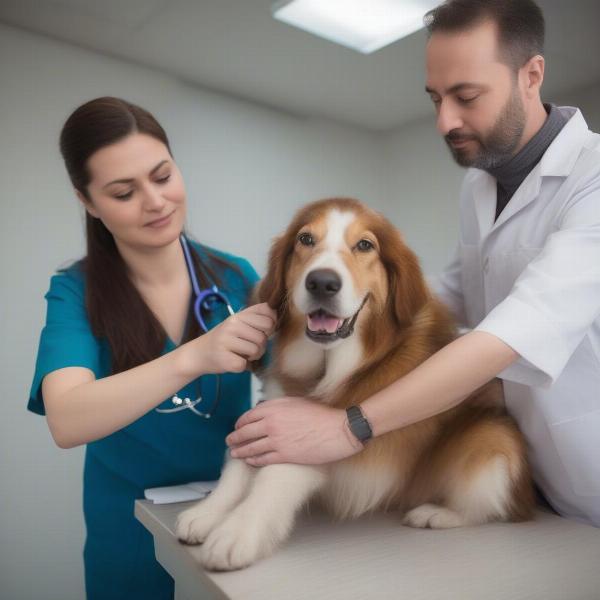Incurin, the brand name for the drug estriol, is sometimes prescribed for dogs with urinary incontinence. While it can be effective in managing this condition, concerns about the potential link between Incurin and cancer in dogs often arise among pet owners. This article addresses these concerns and provides factual information about Incurin, its uses, potential side effects, and the current scientific understanding of its relationship with cancer in dogs.
Understanding Incurin and its Uses
Incurin is a synthetic estrogen used to treat urinary incontinence in spayed female dogs. It works by strengthening the urethral sphincter muscles, helping to prevent urine leakage. This condition is common in older, spayed females and can significantly impact their quality of life. Incurin is often effective in reducing or eliminating incontinence episodes, providing relief for both the dog and their owner.
Potential Side Effects of Incurin
Like any medication, Incurin can cause side effects. Common side effects include increased thirst and urination, vulvar swelling, and attraction of male dogs. More serious, though less common, side effects can include bone marrow suppression and an increased risk of pyometra (a uterine infection). It’s important to monitor your dog closely for any changes in behavior or health while on Incurin and to consult your veterinarian immediately if you notice anything unusual.
Incurin and Cancer: The Current Scientific Understanding
The question of whether Incurin causes cancer in dogs is complex. While estrogens are known to be potentially carcinogenic in some species, the link between Incurin and cancer in dogs is not definitively established. Some studies have suggested a potential association between estrogen therapy and mammary tumors in dogs, while others have found no significant link. More research is needed to fully understand the long-term effects of Incurin and its potential cancer risks.
What to Discuss with Your Veterinarian
If you are considering Incurin for your dog, it is crucial to have a thorough discussion with your veterinarian. This discussion should cover your dog’s overall health, medical history, any existing conditions, and potential risks and benefits of Incurin. Your veterinarian can help you make an informed decision based on your dog’s individual circumstances. Be sure to ask about alternative treatments for urinary incontinence, as well as strategies for managing potential side effects.
 Veterinarian Examining a Dog
Veterinarian Examining a Dog
Conclusion
Incurin can be a valuable tool in managing urinary incontinence in dogs, improving their comfort and quality of life. While concerns about a potential link to cancer exist, further research is needed to fully understand this relationship. Open communication with your veterinarian is essential for weighing the risks and benefits of Incurin and making the best decision for your dog’s individual needs.
FAQ
-
What is Incurin used for in dogs? Incurin is used to treat urinary incontinence in spayed female dogs.
-
What are the common side effects of Incurin? Common side effects include increased thirst and urination, vulvar swelling, and attraction of male dogs.
-
Does Incurin definitely cause cancer in dogs? The link between Incurin and cancer in dogs is not definitively established and requires further research.
-
What should I discuss with my veterinarian about Incurin? Discuss your dog’s health history, potential risks and benefits, alternative treatments, and side effect management.
-
Are there other options for treating urinary incontinence in dogs? Yes, several other treatments are available. Discuss these options with your veterinarian.
-
How does Incurin work? It strengthens the urethral sphincter muscles to prevent urine leakage.
-
Is Incurin safe for all dogs? No, Incurin may not be suitable for all dogs, particularly those with certain pre-existing conditions.
ILM Dog is your trusted resource for expert advice on dog care and wellbeing. We offer comprehensive information on dog breeds, health, training, nutrition, grooming, and more. From puppy care to senior dog care, we cover every aspect of your dog’s life. Need expert advice? Contact us at [email protected] or call us at +44 20-3965-8624. Visit ILM Dog for more helpful resources!